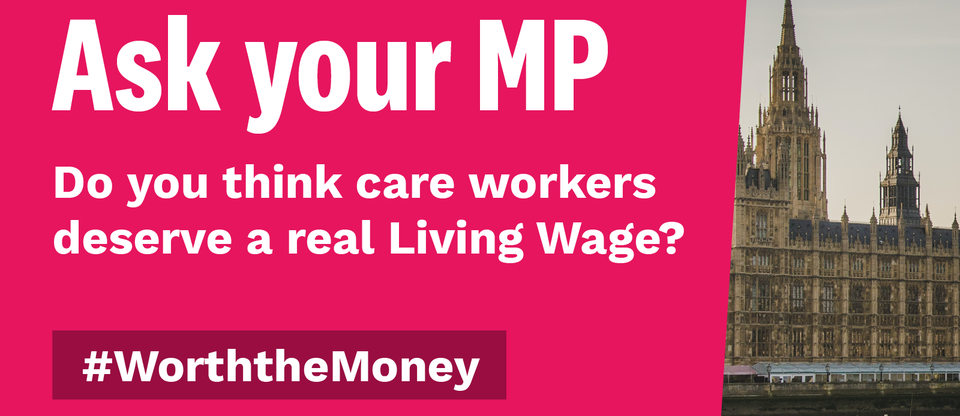We care about care – do you?

Citizens UK is today ( November 10 , 2020 ) l aunching a social media campaign to get people to share why they care about care # WorthTheMoney .
In June we launched our campaign to get key workers a real Living Wage. We want to increase the pressure on the government by sharing public care stories . We need to win a funding settlement so those working in social care get paid a real Living Wage (£9. 5 0 across the UK and £10. 8 5 in London).
How can you get involved? Think about how social care has touched your life . Pick up your phone and record a 60 second video on why you care about care. Upload that to your social media – Facebook, Instagram, Twitter, TikTok , Snapchat – use # WorthTheMoney and tag your local MP or council leader as well . Get your friends and family involved. Why is the real Living Wage so important?Jackie, one of the UK’s 900,000 front line care workers, said: “I’ve been working as a care worker for fifteen years and I love my job, but we are so undervalued. Many of my colleagues struggle to get by each month, sometimes they don’t even have enough for the bus fare to get to work. But we are all so committed, we take pride in our job and provide high quality service. We have significant responsibilities in our job and it can be emotionally draining. We go above and beyond for the people we care for, the least we deserve is to be paid a decent wage.”
Recent evidence from the Resolution Foundation reveals that almost half (500,000) of all frontline care workers currently earn below the real Living Wage . In addition to this, new research from the Living Wage Foundation finds around 280,000 social care employees are in insecure and low paid work that leaves them particularly vulnerable to Covid-19 .




